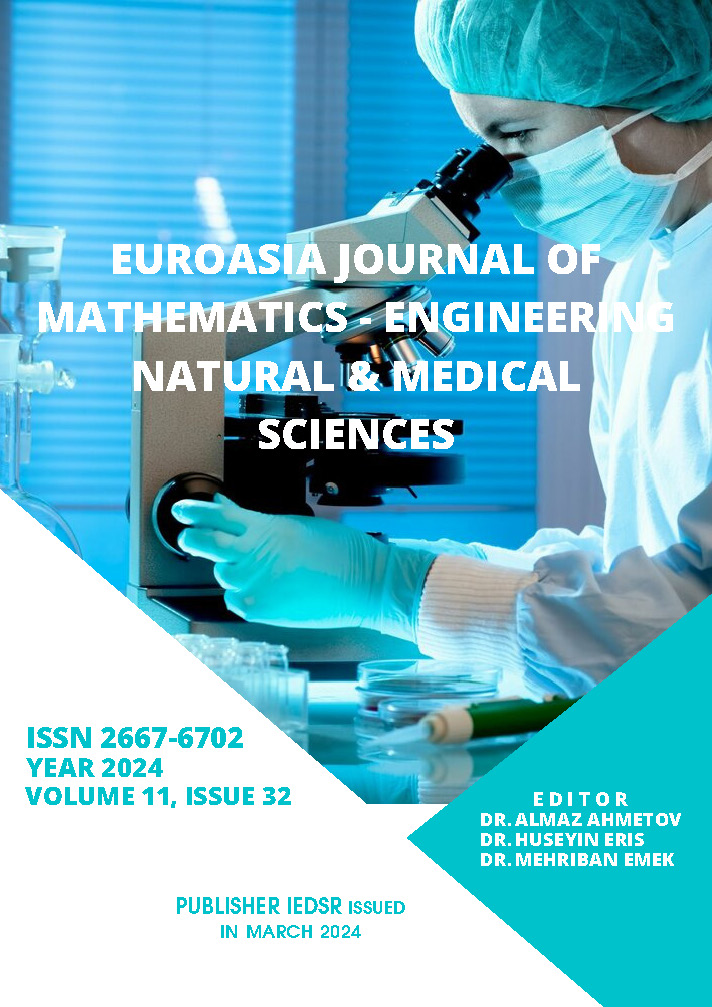Study on Questioning Earthquake Awareness After the 2023 Kahramanmaraş Earthquake
DOI:
https://doi.org/10.5281/zenodo.11845514Keywords:
Earthquake Awareness, Earthquake, Social media and Earthquake AwarenessAbstract
Earthquakes are unpreventable natural events; They cause significant loss of life and property by negatively affecting the social, economic and cultural activities of societies. [1,2] With today's technological possibilities and scientific studies, it is estimated that earthquakes will cause serious loss of life and property in the future, as in the past [3]. However, knowing and implementing what to do before, during and after an earthquake can minimize the damage. For this, the individual must know the earthquake disaster, the earthquake potential in the place where he lives, be knowledgeable about what needs to be done to protect against earthquakes, and be able to apply this knowledge [4].
In this study, a survey was prepared about the behavior of the participants before, during and after the earthquake and what effect social media had on earthquake awareness. In the evaluation, a total of 516 people from 43 provinces were reached and the majority of them were people who experienced an earthquake. As a result of the evaluation, the effects of the earthquake on people were examined and it was observed that people became a little more conscious after the last earthquake, but they still did not take action. As a result of the earthquakes, it was seen how important non-governmental organizations and first aid people are. In the survey conducted, it was seen that 7.4% of the participants were members of any non-governmental organization related to emergencies, and 35.7% received first aid training. In line with the survey results, it has been seen that more work needs to be done to make people more aware in our society and to reflect what they have learned into their behavior.
References
Yükseler M. (2019). 1. Sınıf Öğrencilerinin Deprem Bilinci Bilgi Düzeyleri. Yüksek Lisans Tezi. Çanakkale Onsekiz Mart Üniversitesi Sağlık Yüksekokulu, Çanakkale.
Gümüş B. (2022). Elâzığ Depremi Yaşayan Genç Bireylerin Fiziksel Aktiviteye Katılım Motivasyonu Sağlıklı Beslenme Düzeyinin İncelenmesi. Yüksek Lisans Tezi. Bitlis Eren Üniversitesi Lisansüstü Eğitim Enstitüsü, Bitlis.
Demirci A. ve Karakuyu M. (2004). Afet Yönetiminde Coğrafi Bilgi Teknolojilerinin Rolü. Doğu Coğrafya Dergisi 12.
Demirci A. ve Yıldırım S. (2015). İstanbul’da Ortaöğretim Öğrencilerinin Deprem Bilincinin Değerlendirilmesi. Milli Eğitim Dergisi.
AKSOY, B. ve SÖZEN, E. (2014). “Lise öğrencilerinin coğrafya dersindeki deprem eğitimine ilişkin görüşlerinin çeşitli değişkenler açısından incelenmesi (Düzce ile Örneği)”, Uşak Üniversitesi Sosyal Bilimler Dergisi.
ÖCAL, A. (2005). “İlköğretim Sosyal Bilgiler dersinde deprem eğitiminin değerlendirilmesi”, Gazi Eğitim Fakültesi Dergisi.
Usta P., Işıl Çarhoğlu A. ve Korkmaz K. (2014). Sosyal Medya ile Deprem Bilincinin Yükseltilmesi. XIX. Türkiye'de İnternet Konferansı Bildirileri, İzmir.
Downloads
Published
How to Cite
Issue
Section
License
Copyright (c) 2024 Euroasia Journal of Mathematics, Engineering, Natural & Medical Sciences

This work is licensed under a Creative Commons Attribution-NonCommercial 4.0 International License.

